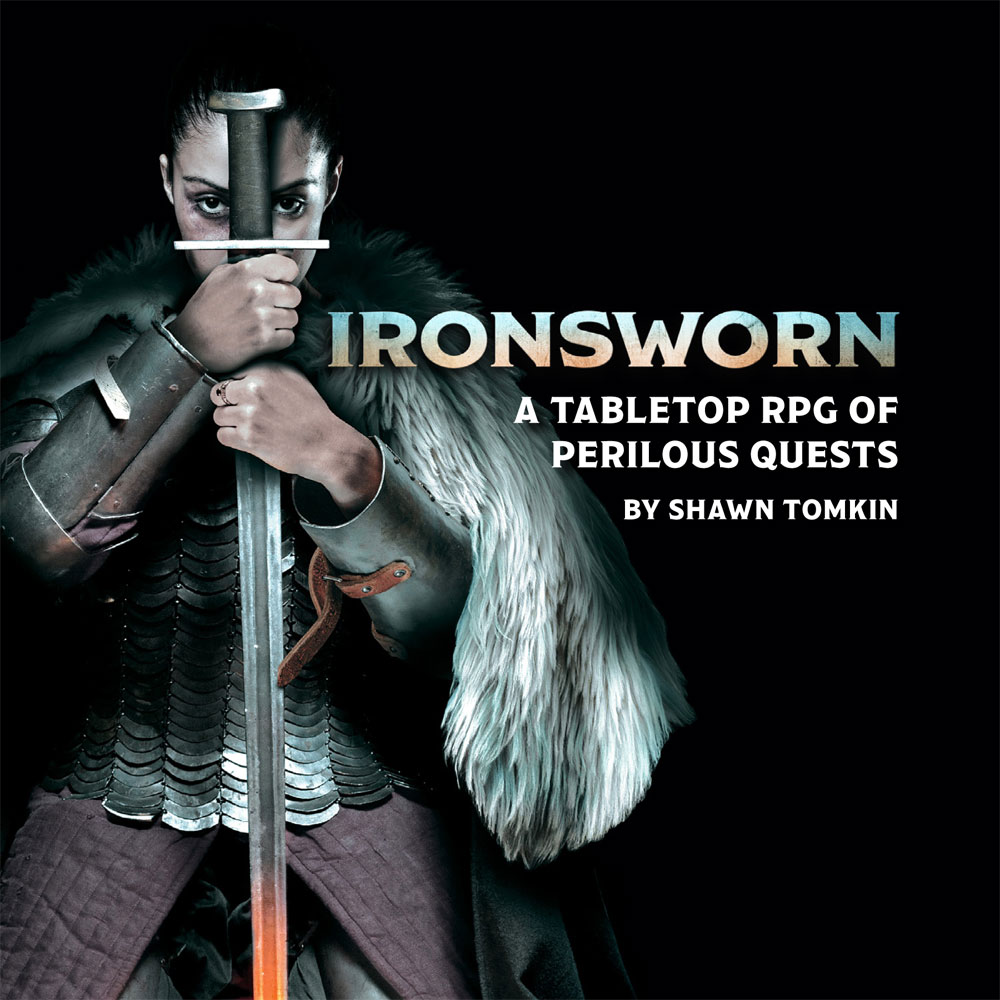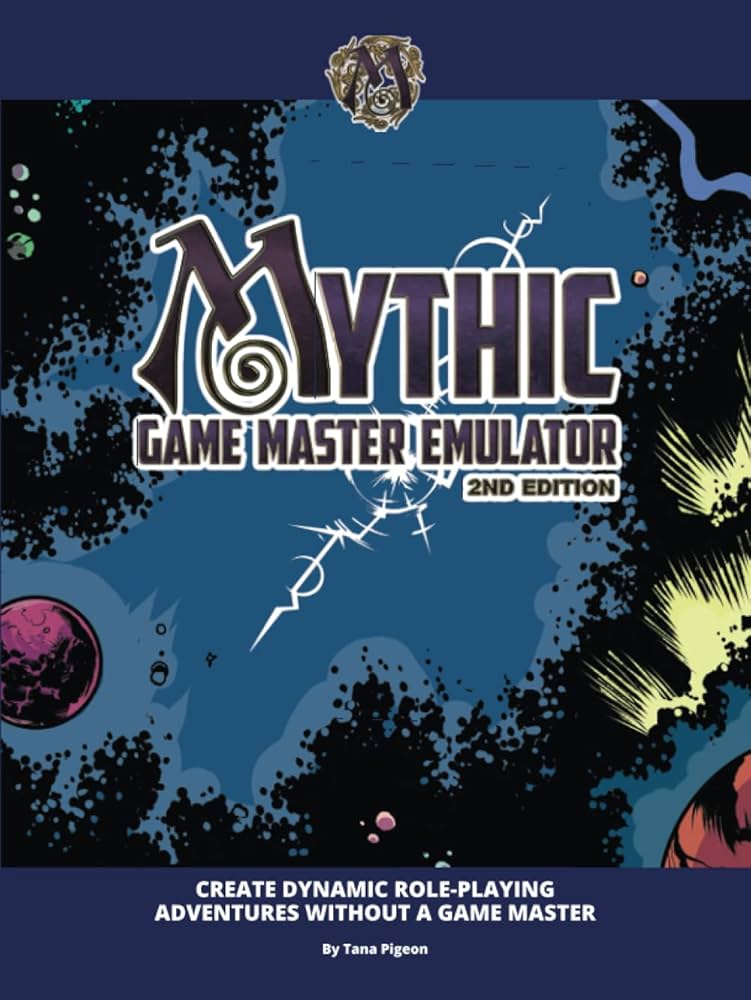So, you love roleplaying games but your party has ghosted you better than a rogue with a stealth bonus. Or maybe your schedule is so erratic that even trying to plan an hour for a quick RPG session makes your calendar cast fireball. Or perhaps you’re simply an introvert who prefers dragons to dinner parties. Whatever your reason, you’ve stumbled into the wonderful, weird, and wildly creative world of solo roleplaying games.
Solo RPGs are like journaling, improvisational acting, storytelling, and rolling dice all rolled into one glorious burrito of geeky joy. You are the player, the game master, and possibly the dragon too. Of course that can depend on your level of commitment and how many voices you’re willing to do when no one’s watching. The best part? No one will judge you when you talk to yourself dramatically in the mirror.
Let’s take a look at how to become a solo RPG adventurer in just a few simple steps. Grab your dice, your favorite notebook, and your inner thespian. It’s time to embark on a quest where you can’t argue with the GM… because you are the GM.
Step 1: Choose a System
Like choosing a wand in Harry Potter, or a flavor at an ice cream shop that has 200 options (why?), picking the right RPG system for solo play is the first critical step. Not all RPGs are created equal, and some are better suited to solo play than others.
Go Simple, Stay Fun
For beginners, rules-light systems are your best friend. You want something that won’t make you feel like you’re studying for a math test every time you want to stab a goblin. Good examples include:
- Ironsworn – This game was practically born for solo play. It includes built-in mechanics for oracle tables (randomized prompts to guide your story), character creation, and narrative progression.
- Mythic Game Master Emulator (GME) – Not a system per se, but a tool that lets you use any RPG you want by simulating the role of a game master with yes/no questions and story prompts. This is great if you are already familiar with a RPG system and just want a way to simulate a GM.
- Four Against Darkness – A dungeon-crawling game where you can sketch maps and delve into randomly generated dungeons, fighting monsters and looting treasure along the way. It’s a bit like a Choose-Your-Own-Adventure book, but without the paragraphs.

What about D&D? Can you play it solo? You can, but you’ll probably want to pair it with a GM emulator or a published solo adventure module (of which there are many). Otherwise, you’re going to spend a lot of time playing “Guess What the Dungeon Master is Thinking.”
So if you’ve always wanted to live out your grim, Viking-inspired survivalist fantasy, Ironsworn is your jam. But if you’d rather take your favorite system (cough D&D 5e cough) and Frankenstein it into a solo experience, then the Mythic GME will be your duct tape.
Step 2: Get Comfortable with the Rules
Now that you’ve chosen your system, it’s time to do the thing every tabletop gamer does after their first three sessions: read the rulebook.
Learn Enough to Start, Not Everything
You don’t need to know every single rule. Instead, focus on learning just enough to start playing. You won’t have players waiting on you, so looking up rules mid-combat is no problem any more. Just focus on core mechanics like:
- How actions are resolved (rolling dice, drawing cards, etc.)
- How to generate events or randomness (oracle tables, random encounters)
- How characters are created and improved
- How time passes and progress is tracked in-game
Don’t get lost trying to remember all the rules. The rule books will be reference guides, and the beauty of playing solo means if you want to house rule something on the fly then no one will argue with you.
Let The Story Take You
If you’re using something like Mythic GME, it might feel weird at first. After all, you’re asking yes/no questions and letting the dice determine the answer. There’s a lot of tables and information in the Mythic GME, but just stick to the basics. It’s essentially a springboard for your imagination.

And it can feel tempting to over-analyze a result. But after a few turns, your brain starts filling in the gaps. You’ll be amazed at how quickly a story emerges, even from the simplest prompt.
Let’s say you’re playing a noir detective using Mythic GME. You ask, “Does the client seem nervous?” Roll the dice. The answer: “Yes.” You roll on the event table and get “Deceive / Power.” Suddenly, she’s not just nervous—she’s lying to you because she’s being blackmailed by the mayor! Boom. Instant plot twist. And you only just opened your trench coat.
Pro tip: Make a cheat sheet for reference during play. Include your key mechanics, common oracles, and your character sheet all on one page. Efficiency + immersion = success.
Step 3: Set the Scene and Start Small
You don’t need to plan an epic ten-part campaign right away. You also don’t need to detail a massive world filled with characters before the first session.
Instead, start small. Think of a situation, a location, and maybe one or two NPCs. The rest will develop as you play.
Use prompts like:
- “What does my character want?”
- “Where does the adventure begin?”
- “What problem or mystery is happening right now?”
Then ask a few yes/no questions, roll some dice, and see where the rabbit hole leads. You’ll find the dice serve up plenty of unexpected twists and turns, as well as memorable characters as you go.
For Example: You’re a space scavenger stuck on a derelict ship. Ask: “Is the ship powered?” Roll: No. “Are there life signs?” Roll: Yes. Cue creepy synth music. Congratulations, you’ve just written the beginning of your sci-fi horror campaign and possibly wet your pants.
Step 4: Record Everything (But Not Like a Court Reporter)
Solo RPGs are often part game, part journal. Whether you’re using a fancy leather-bound tome, or a Google Doc named “DO NOT DELETE AGAIN,” you should keep a record of what happens. This not only helps you stay immersed, but also keeps internal consistency. when you catch up with the Orc that stole your lunch money five sessions later, will you remember if his name was Waagh, Maagh or Gaagh?
A good journal also stands as a record of your great deeds and lets you look back on your story with awe, horror, and a slight cringe at your character’s fashion choices.
Do Record:
- Major events
- Character choices
- Character and place names
- Plot twists and discoveries
- Questions you asked and results you got
Feel free to write in first person (“I crept through the crypt…”) or third person (“The rogue crept through the crypt…”). Or mix it up! Nobody’s grading this. It’s just for your eyes only.
For Example: After a few sessions, you might have a gritty narrative like:
“Day 3. I ran out of water and was forced to drink from the radiated stream. My left eyebrow is now sentient. I’ve named it Bernard.”
Step 5: Let Go of Control (Embrace the Chaos)
In a group game, the chaos comes from other players and the dice, with the GM trying to hold the fabric of reality together with duct tape and expletives. In a solo RPGs, it all comes from you.
The more willing you are to let randomness and prompts lead the story somewhere unexpected, the more fun you will have, and the more alive your campaign will feel.
Just like being a good GM for other players, don’t try to control everything. If the dice say the bridge collapses, let it collapse. If the event table tells you “Love / Misunderstanding,” then your character’s bitter enemy might secretly have a crush. Roll with it (pun absolutely intended).
For Example: You think you’re playing a gritty survival game, but the oracle insists on injecting a talking bear who gives questionable advice. Don’t fight it. Just ask the bear what it thinks you should do about the dragon. Worst case, you get eaten. Best case, you get a new party member named Sir Growlsalot.
Conclusion
Solo roleplaying games are a delightful mix of structure and chaos, rules and imagination, solitude and storytelling. Whether you’re an introvert seeking immersive escapism or just someone tired of scheduling nightmares, solo RPGs let you dive into epic worlds on your terms and in your time.
To recap:
- Pick a system that supports solo play or can be adapted.
- Learn the rules well enough to not break your own brain.
- Start small, record your story, and embrace the unexpected.
Now go forth, noble solo adventurer! Roll the dice, ask the questions, and let your imagination run wild. Your destiny awaits!
And that destiny it definitely includes at least one scene where you dramatically monologue at an empty chair. But hey, that’s just another Tuesday in solo RPG land.
